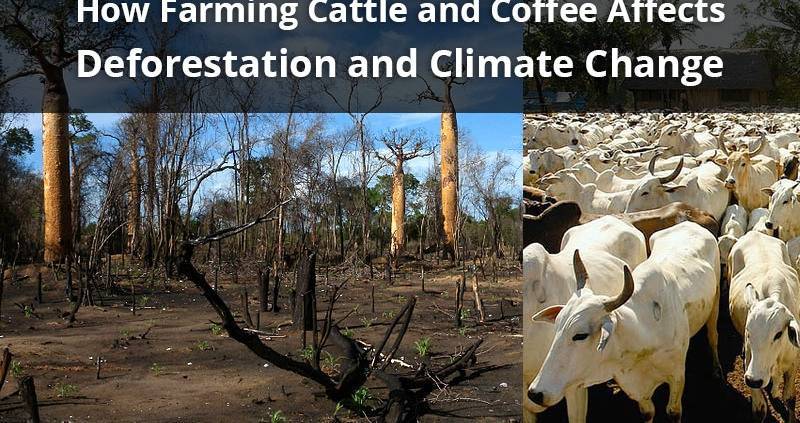Deforestation is an environmental issue impacting every continent in the world. It can be linked to various causes, with various impacts. In the U.S., Russia, and China, forestry and wildfires are the top drivers (Mongabay, 2020). But these losses are minute compared to the destruction caused by industrial and small-scale agriculture. In fact, agriculture is the primary driver for deforestation. Worse, it disproportionately impacts communities in developing countries in Africa, Asia, and Latin America. Agriculture as a driver is usually two-fold; most cleared land is used for cattle farming, for both pasture and planting feed crops (usually soy). Second to cattle ranching, agricultural drivers include crops grown in tropical climates like soy, palm, coffee and cocoa, and logging for paper and pulp products. The production of these commodities is often tied to larger social and environmental issues, such as land tenure rights particularly among indigenous people, soil degradation, water pollution, wildlife destruction, and fertilizer and pesticide use.
Soil degradation in tropical forests is even more detrimental than that which can occur in temperate forests. Because of their dry and wet seasons (as opposed to warm and cold), tropical forests are constantly recycling nitrogen. There is actually very minimal amounts of nitrogen stored in the soil. Then, when forests are cleared, nutrients are easily removed because of increased runoff or uptake in crops.
This creates a cycle where arable land within tropical climates are constantly at risk for becoming completely fallow. This then contributes to fertilizer reliance, which similarly flows into waterways through runoff, resulting in water pollution. Clearing forests also contributes to climate change, both through releasing carbon sequestered in trees, and by reducing the capacity of carbon sequestration captured by forests.
You may be thinking, what does this have to do with me, or maybe even what can I do? Well, there are of course many things that could prevent deforestation such as stronger government-level policies restricting corporations, adopting agroforestry techniques, and protecting indigenous land rights. But even as Americans, seemingly far-removed from the problem, there are steps we can take. The majority of commodities like soy (not grown for cattle feed), palm, coffee, and cocoa, are used in supply chains by corporations that we rely on here in the U.S.
So, we can be educated on how we might be contributing to deforestation by supporting certain brands. Oxfam International tracks the supply chains of the ten largest, global corporations including PepsiCo, Unilever, Coca-Cola, Danone, General Mills, Kellogg, Mars, Mondelez International, Nestlé, and Associated British Foods. “…Nestlé and Unilever are currently performing better than the other companies, having developed and published more policies aimed at tackling social and environmental risks within their supply chains” (Oxfam, 2019). Some other corporations make a point to be transparent in their supply chains, such as Starbucks and Estée Lauder. By making small changes, like reaching out to a local cattle farmer for beef, instead of purchasing from the mainstream giants, we can impact the demand for deforestation.
https://news.mongabay.com/2020/03/record-high-global-tree-cover-loss-driven-by-agriculture/
https://policy-practice.oxfamamerica.org/work/in-action/behind-brands/




Leave a Reply
Want to join the discussion?Feel free to contribute!